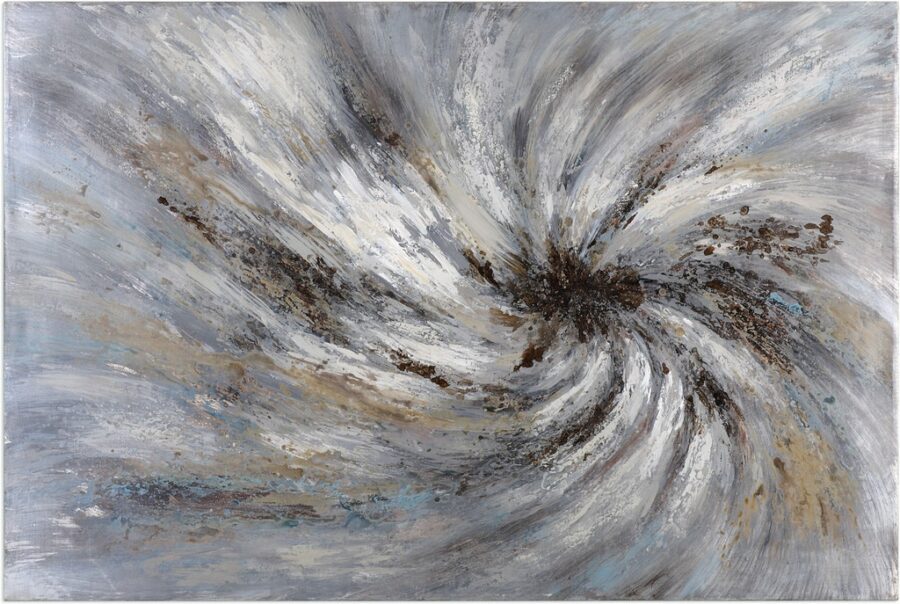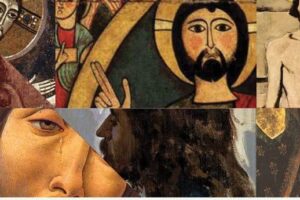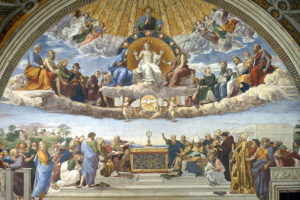The more I read Hebrews, the more I am convinced that Auctor wanted his readers to see themselves as members with OT Israel in their wilderness journeys. I often wonder why Hebrews includes discussion about angels, Moses, the high priest, sacrifices, the tabernacle, and other OT images; but lately I am beginning to think that we as believers are to see ourselves in the a new kind of wilderness, exiled without a home of our own. While we are in this new sort of wilderness, awaiting of final eschatological rest, we also have similar institutions and regulations for worship much like those of Israel.
For example, Israel had their Apostle (Prophet) Moses. He was the messenger sent by God to communicate to Israel the Old Testament Covenant (Heb 3.1ff). We also know that the angels played some kind of role in the giving of the Law according to Paul (Gal 3.19). But for Christians, we have the great Apostle of our confession Jesus Christ (Heb 3.1). He is God’s last and final word and spokesman, appointed by God as His Son to deliver the final word (Heb 1.1-2).
Also, much like Israel suffered in the wilderness and was tempted, Christ also suffered and was tempted, yet without sin (Heb 2.18). We know from the Torah and the quotation from Ps 95 (94 LXX):7-11 that the Israelites did not pass their test, but rather they rebelled in the wilderness, their hearts hardened to God and his faithfulness. We also know that that generation did not enter into the rest which was promised them. Now, for us who remain faithful a Sabbath rest is waiting.
There is also the establishment of a new priesthood and a new high priest. Jesus is not only the Apostle of our confession, he is also the high priest. Much like in the wilderness, the people of God have a high priest who ministers at the altar, but this altar is in heaven. Auctor tells us that “We have such a high priest, who has taken his seat at the right hand of the throne of the Majesty in the heavens, a minister in the sanctuary and in the true tabernacle, which the Lord pitched, not man” (Heb 8.1-2). The reason for a new priesthood is due to the fact that their has been a change of Law. The Old Testament Covenant contained the cultic sacrifices for the sin of the people, and these sacrifices were a perpetual reminder of the need for redemption and cleansing. The Old Testament Covenant was officiated by the Levitical priesthood. But Christ, by means of his death established a New Covenant (Heb 8.8-13) and a new priesthood which the people of God now operate under.
Further, we are also not left without an example of how we are to live under this New Covenant. The readers of Auctor’s letter were suffering and facing difficulties for their faith in the Messiah. They were being publicly shamed and mistreated by those around them, and this was leading them to question God’s promises and faithfulness. This is not dissimilar to what the Israelites were going through as well in the wilderness. Auctor did not want to see his readers fall in the wilderness and perish on the way to rest, so he reminded his readers of lives lived in the face of suffering (Heb 11). While they may be tempted to think that they were experiencing their sufferings alone, they were to be encouraged that the faithful men of the OT experienced similar kinds of suffering. But the greatest example of suffering is seen in the life of Jesus. For this reason, believers are exhorted to “Fix our eyes on Him, the author and perfecter of our faith, who for the joy set before him endured the cross, despising the shame, and has sat down at the right hand of the throne of God” (Heb 12.2).
The wilderness motif in Hebrews should be in the back of our mind as we read this incredible book. In closing, many have noted Auctor’s focus on the offering of sacrifices is an interpretive key to dating Hebrews before the fall of Jerusalem and the destruction of the Temple in 70 AD. This may be so, but I find it even more interesting and compelling that there is no mention of the temple itself, but rather the focus is on the tabernacle. By focusing on the Tabernacle and the wilderness experience of Israel, Auctor wants his readers to put themselves in the wilderness with OT Israel.
What are your thoughts?





3 Comments
Leave your reply.